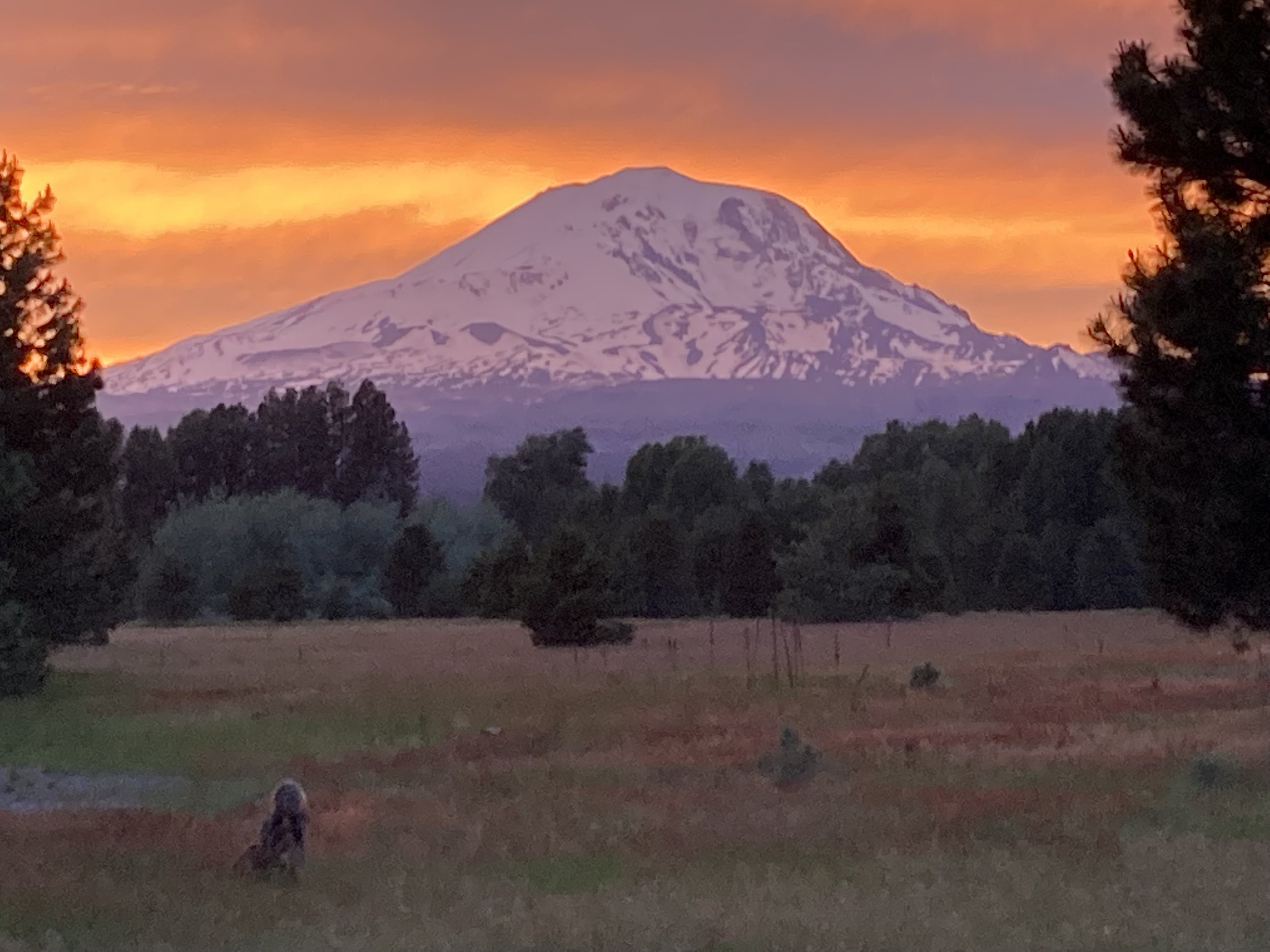I hate my house.
Don’t get me wrong. I love our home and all the life that happens here. We couldn’t live in a more spectacular spot. Mt. Adams looms directly in front of us, offering a staggeringly breathtaking view that is just there for the looking. Our home is a place of hope and healing, a space to grieve and give thanks, and a dwelling where imperfect love, grace, and welcome reside in abundance. This rustic home is a shelter in the storm and a sanctuary in a world that seems to be crumbling before our eyes, threatening to taking us all down with it.
But I still hate my house.
We built it 14 years ago, and it is in need of freshening up. It’s true that most of the furnishings have a fun story behind them. There’s the fantastic $25 couch from the Goodwill Outlet (yes, that’s a thing), a dining room table and chairs from the consignment store next door to Sleepy Monk (our favorite coffee shop in the whole entire world), the matching Woolrich blinds that were still in their original boxes when I found them at another Goodwill, and the coffee table that used to display men’s ties from my days working for Nordstrom. There is a serious lack of floor and table lamps, as those seem to be what little grand boys love to bring crashing to the floor. Nothing goes with anything else, and if I hung sale tags on everything, you would think you’d wandered into a secondhand store with a first-class view. The house is a decorating hodgepodge that has gotten under my skin. And not in a good way.
Given the current economy, this isn’t necessarily the time to invest in a large-scale makeover. Two things are helping me navigate my current aesthetic crisis, and neither one costs me a dime.
The first is a comment from my sister several months ago. She suggested that every time I walk through the house, I should remember something good that happened here. Remember all of the gatherings and conversations and decisions and stories and apologies and connections and celebrations that have happened in this house that I hate that sits under the shadow of that glorious mountain. Recall the tears and hugs and laughter and prayers and meals and toasts and naps that have taken place in front of that beautiful rock fireplace.
So much good has happened here, and it’s had nothing to do with finding the right fabric or purchasing the perfect rug. It’s happened because of the intention with which we built this home, the vision we had for it to be a safe place for all who walk through the door, and our ongoing work to learn how to better love, help, and heal the world that is within our reach. Starting right here. In this house that I hate.
The second source of help came today in the midst of what is always a fruitful monthly conversation with my spiritual director. As he quietly listened to me express my need to get back to writing but not finding my way to my desk to actually write, and my failed commitment to spend regular time in contemplative prayer and meditation, it hit me. I recently took an inventory of the spaces that I actually love in this house that I hate. There are two to be exact. One is my tiny office on the stair landing, the other my meditation space tucked under the eves upstairs. I love everything about these two spaces: their location, the furnishings, the colors, and the way they are arranged. The two places I love the most are also the ones where I need to show up the most.
So many things can get in the way of doing what we most need to do to so that we can be who we most want to be. The fear that stops us in our tracks. The lie that things are so bad that what we each do doesn’t matter. The pain, blame, shame, finger pointing, screaming matches that find their way into our news feeds, email inboxes, and social accounts. The too-muchness of it all can cause us to do too little, and then everyone loses.
Writing is the way I make sense of the world and my place in it. Quiet time in the presence of the Holy grounds me in a world that is spinning out of control. If there are two things that I need to do, these are them. And I haven’t been doing them. And it shows.
My desk and meditation space that I love are waiting for me, right here, in this house that I hate. All I have to do is show up, and the rest will take care of itself.










